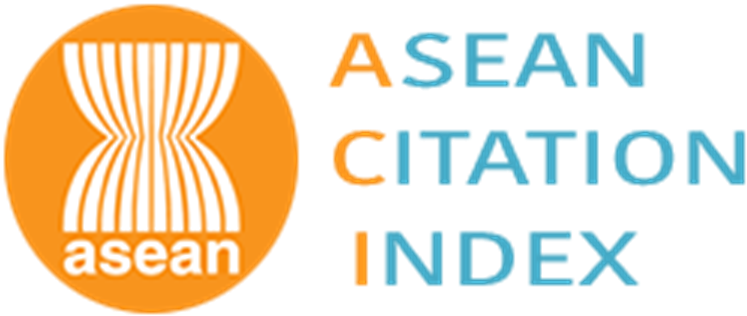แนวทางการพัฒนาพฤติกรรมการสร้างสรรค์นวัตกรรมของพนักงานที่มีต่อผลการดำเนินงานของวิสาหกิจขนาดกลางและขนาดย่อมในประเทศไทย
The Effect of Employees’ Innovation Work Behavior on Business Performance of Small and Medium Enterprises in Thailand
Abstract
การวิจัยครั้งนี้มีวัตถุประสงค์ เพื่อศึกษาแนวทางการพัฒนาพฤติกรรมการสร้างสรรค์นวัตกรรมของพนักงานที่มีต่อผลการดำเนินงานของวิสาหกิจขนาดกลางและขนาดย่อม โดยใช้ระเบียบวิธีการวิจัยและพัฒนา กลุ่มตัวอย่างที่ใช้ในการวิจัย คือ ผู้ประกอบการวิสาหกิจขนาดกลางและขนาดย่อมในเขตกรุงเทพมหานคร จำนวน 400 คน เครื่องมือที่ใช้ในการวิจัย ได้แก่ แบบสอบถาม ผลการวิจัยสรุปได้ดังนี้ ขั้นตอนที่ 1 การสัมภาษณ์เชิงลึกความคิดเห็นเกี่ยวกับแนวทางการพัฒนาพฤติกรรมการสร้างสรรค์นวัตกรรมของพนักงานที่มีต่อผลการดำเนินงานของวิสาหกิจขนาดกลางและขนาดย่อมในประเทศไทย จากกลุ่มเป้าหมายที่ 1 พบว่า พฤติกรรมการสร้างสรรค์นวัตกรรมประกอบด้วย 4 ด้าน คือ 1) ความคิดสร้างสรรค์ของพนักงาน2) ความมีนวัตกรรมของพนักงาน 3) พฤติกรรมการปฏิบัติงานเชิงรุกของพนักงาน และ 4) พฤติกรรมการแสวงหาโอกาส ส่วนผลการดำเนินงานของ SMEs ประกอบด้วย 6 ด้าน คือ 1) กลยุทธ์และการจัดการองค์กร 2) โรงงานอัจฉริยะ 3) การดำเนินงานหรือการผลิตอัจฉริยะ 4) ผลิตภัณฑ์อัจฉริยะ 5) การบริการขับเคลื่อนข้อมูล และ 6) พนักงาน ขั้นตอนที่ 2 การศึกษาความคิดเห็นเกี่ยวกับการพัฒนาพฤติกรรมการสร้างสรรค์นวัตกรรมของพนักงานที่มีต่อผลการดำเนินงานของวิสาหกิจขนาดกลางและขนาดย่อม พบว่า 1) ความคิดเห็นเกี่ยวกับการพัฒนาพฤติกรรมการสร้างสรรค์นวัตกรรมของพนักงานของผู้ประกอบการ SMEs อยู่ในระดับมาก ( = 3.66, S.D. = 0.34) 2) ความคิดเห็นเกี่ยวกับผลการดำเนินงานของ SMEs เพื่อรองรับไทยแลนด์ 4.0 ของผู้ประกอบการ SMEs อยู่ในระดับมาก ( = 3.68, S.D. = 0.29) และ 3) การพัฒนาพฤติกรรมการสร้างสรรค์นวัตกรรมของพนักงานมีความสัมพันธ์และผลกระทบเชิงบวกกับผลการดำเนินงานของ SMEs และตัวแปรที่พยากรณ์ผลการดำเนินงานของ SMEs เพื่อรองรับไทยแลนด์ 4.0 ได้แก่ ด้านความคิดสร้างสรรค์ของพนักงาน (BEC) ด้านพฤติกรรมการปฏิบัติงานเชิงรุก (BBA) และด้านพฤติกรรมการแสวงหาโอกาส (BSOB)
The purpose of this research was to study the effect of employees’ innovation work behavior on business performance of small and medium enterprises by using research and development methodology. The samples used in the research are 400 small and medium enterprises (SMEs) in Bangkok. The tools used were questionnaires and the results are summarized as follows: Step 1 In- depth Interviews and comments about the effect of employees’ innovation work behavior on business performance of SMEs in Thailand. The target group 1, found out that the innovation behavior consisted of 4 aspects 1) Employee Creativity 2) Employee Innovativeness 3) Proactive Behaviors and 4) Opportunity Exploration Behaviors. Performance of small and medium enterprises that are successful in Thailand 4.0 were consist of 6 aspects 1) Strategy and Organization 2) Smart Factory 3) Smart Operations 4) Smart Product 5) Data Driven Services and 6) Employees Step 2 The study of the performances of SMEs toward Thailand 4.0 found out that the opinions about the development of the innovative behaviour of employees by the entrepreneurial SMEs was at very high level. Average of ( = 3.66, S.D. = 0.34) 2) while opinions about the performance of small and medium enterprises to support Thailand 4.0 of small and medium enterprises mostly in each aspect was at a high level. Average of ( = 3.68, S.D. = 0.29) 3) The development of employee’s innovation behavior was related and had a positive impact on the performance of SMEs. The variables that forcasted business performance of SMEs toward Thailand 4.0 were employee's creativity, proactive behaviors and opportunity exploration behaviors.
Keywords
DOI: 10.14416/j.kmutnb.2019.12.002
ISSN: 2985-2145





